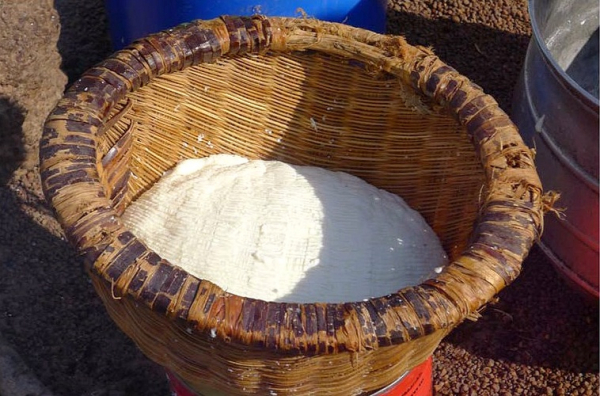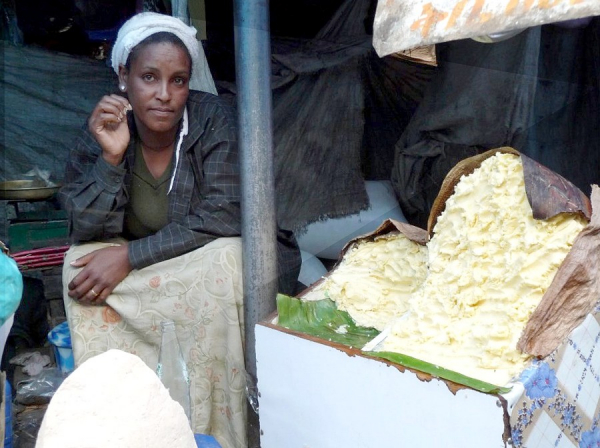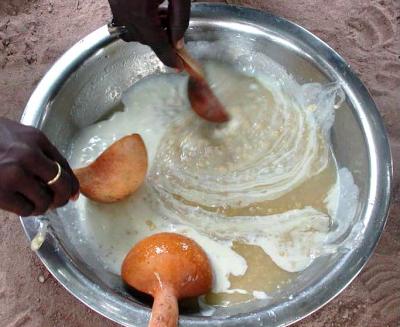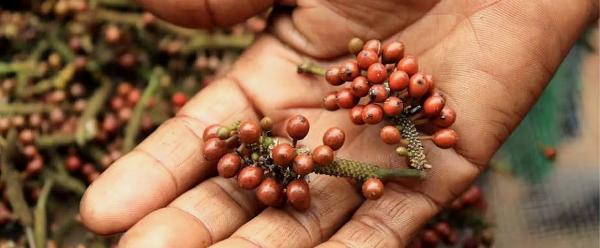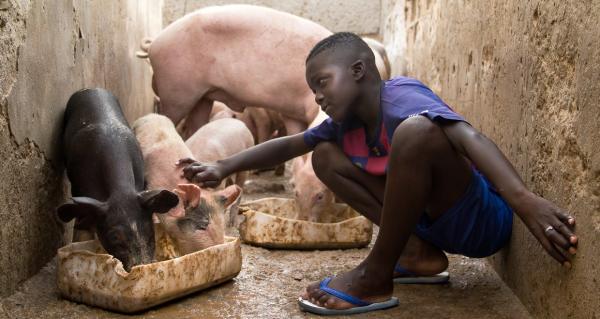Science at work 4 March 2024
- Home
- CIRAD news
- News
- West Africa : diversity of local dairy products threatened
The diversity of local dairy products threatened by imports in West Africa
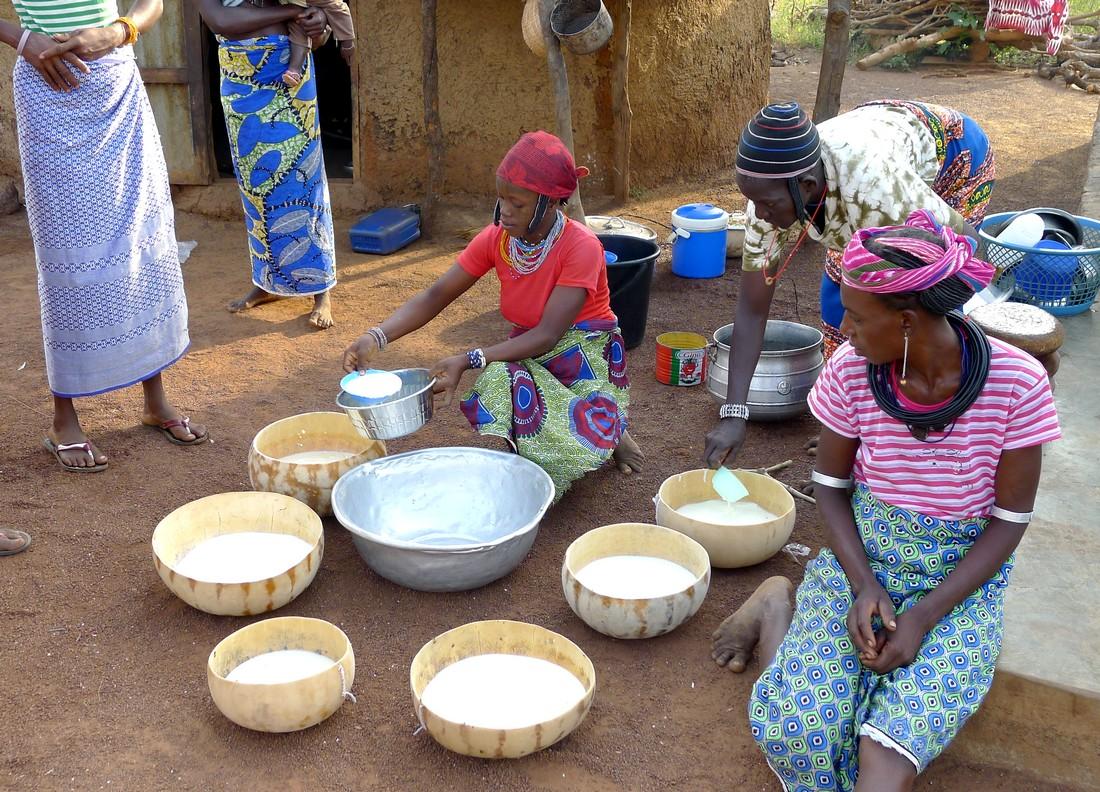
Milk is central to African tradition. It is a noble food and a marker of pastoral societies. It is consumed in the form of fresh milk, curd, butter cream, butter oil, dairy drinks, cheeses, porridge or couscous, among others. This diversity of products is a real source of heritage that helps to forge local identities.
But this cultural asset is not static. It evolves under the effect of several factors such as urbanisation and, more worryingly, is even threatened by other phenomena such as the lack of public support for local production chains and especially increasing international competition.
Through a number of partnerships in Europe and West Africa, Guillaume Duteurtre, an economist at CIRAD, seeks to better understand the impact of international trade on African dairy traditions and local production chains. He presented his research to the 200 dairy sector actors from 25 countries meeting in Dakar (Senegal) for the third edition of the “Milk, driver of development” symposium, on 12 and 13 June 2019.
Refattened milk powder exported to West Africa
The African market has grown substantially in recent years due to population growth. It has become particularly attractive to dairy industries and multinationals, and several major European groups have now set up in the region. However, these groups have little involvement in the development of local dairy production, since they primarily use imported milk powder… from Europe. This is a direct consequence of growing global demand for butter and the end of milk quotas imposed by the European Union on its producers in May 2015. Butter production leaves European industries with large quantities of skimmed milk powder. This “by-product” is refattened with vegetable fats, often palm oil, then sold 30% cheaper in West Africa. This phenomenon is explained in a short video by the Let’s not export our problems! campaign, based on a study by CIRAD.
Fierce competition for West African dairy producers
“Milk powder blends enriched with vegetable fat compete with local milk”, says Guillaume Duteurtre. “They are sold as ‘milk powder’, even though they are not a dairy product in the strict sense, and consumers and processors increasingly use these products because of their price. At the same time, many products traditionally consumed in pastoral areas are no longer sold in towns. This is the case, for example, of fermented milk, solid and clarified butter and some traditional cheeses. The actors in the chain need to organise themselves to promote this dairy heritage and to protect it against milk powder imports”.
Supporting local dairy production
These issues are far from marginal in West Africa, where livestock farming is a major part of the economy. In Mali, for example, 30 % of the population depends directly on this activity. The recognition and promotion of this dairy heritage requires a better characterisation of products, techniques and know-how, which are sources of typicality and competitiveness. Moreover, a better integration of livestock farming into national economies could be a powerful tool for development, especially in the Sahel, a prime example of a pastoral region. Although still modest, the growing interest in local milk collection is seen in the political will, as illustrated by the regional campaign for “local milk” to be launched shortly by the Economic Community of West African States
The dairy tradition could bolster the market
This rich dairy tradition is an opportunity for Africa. It is one of the factors driving the vitality of dairy markets. Already, many industries and artisanal processors are mobilising local names or typically African dairy know-how in their product ranges. In Africa as elsewhere, dairy traditions are changing. They are part of a new vision of local modernity, in which innovations and traditions complement one another.
The many names for milk
In the Fula language in southern Burkina Faso, milk can change name six times in 24 hours! Fresh morning milk is known as biraddam. It is mixed with milk from several cows in a large calabash to be heated. After filtering, milk for drinking (t’obbam) is separated from milk for sale (sippété) and from milk that will be fermented after being left to sit for two hours (hittuddam). This milk for fermenting transforms overnight into a sweet curd (lèl d’an) and then into a sour curd (t’anidda). This curd will become kossam after skimming.
* Launched by SOS Faim, Oxfam, Vétérinaires sans Frontières and a group of West African producers
























